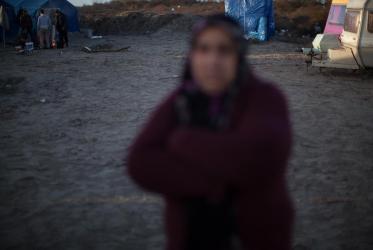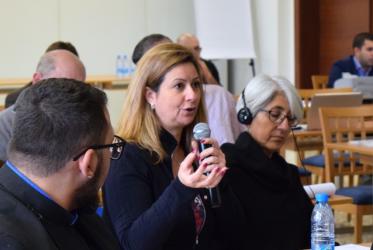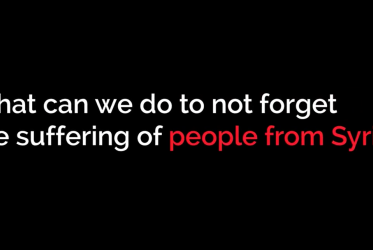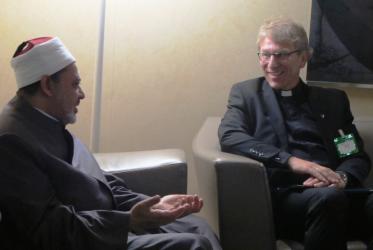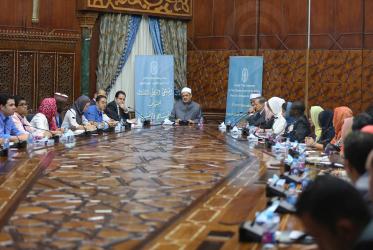Displaying 161 - 180 of 308
08 December 2016
WCC urges immediate focus on safety, security in Aleppo
05 December 2016
Churches’ diaconal action in the Middle East analyzed
01 December 2016
In Syria and Iraq, minorities must come out of the darkness
28 November 2016
Out of the darkness
28 November 2016
Paralyzed by shock
28 November 2016
Driven out
28 November 2016
Grand Imam calls for collaboration against violence and poverty
06 October 2016
Dialogue flourishes between WCC, Muslim Council of Elders
30 September 2016
WCC general secretary reflects on peace in Palestine and Israel
20 September 2016
WCC set to observe World Week for Peace in Palestine and Israel
16 September 2016
Seminar will address youth engagement, religion and violence
19 August 2016
Owe Boersma will strive for equilibrium as EAPPI coordinator
18 August 2016
Facilitating peace with passion
26 July 2016
